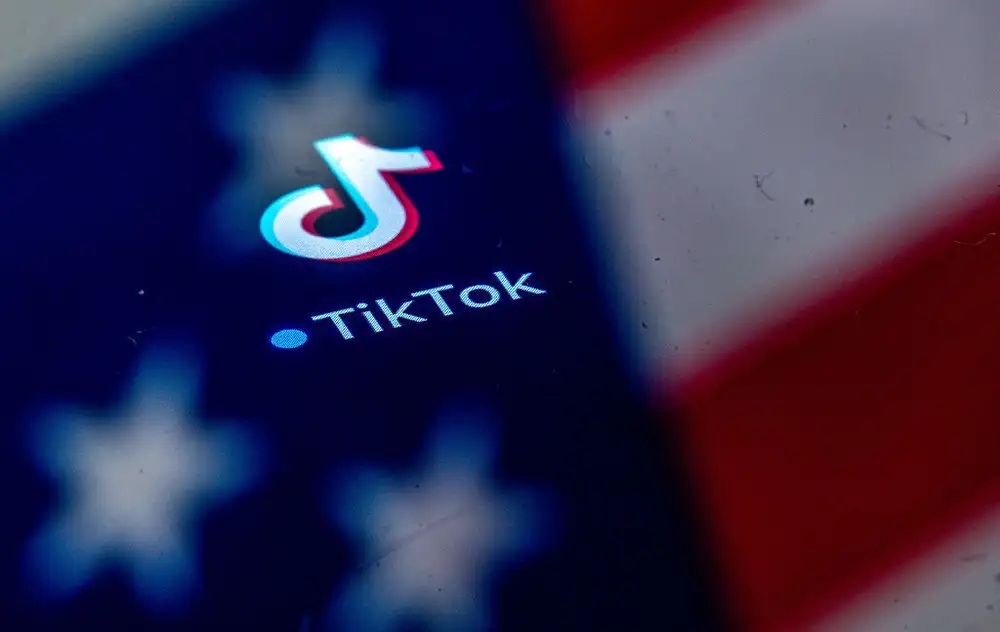The White House confirmed that Donald Trump has extended the deadline for a TikTok sale for a third time, Reuters reported Wednesday.
Now, China-based ByteDance has 90 days to divest its US assets or potentially be forced to shut down US operations. Trump's announcement came one day before the June 19 deadline he established through his last extension. That extension was necessary after Vice President JD Vance failed to make a "high-level" deal expected in April, which Politico branded a "make or break moment" where Vance could have secured a big win.
Yesterday, Trump told reporters on Air Force One that China was holding up the sale, suggesting that China may have an upper hand in TikTok negotiations, and perhaps TikTok is losing its sheen as a US bargaining chip in Trump's bigger trade war.
Asked if he planned to delay the sale deadline again, Trump said, "probably, yeah. Probably have to get China approval but I think we'll get it. I think President Xi will ultimately approve it."
TikTok was supposed to be banned in the US on January 19 under a Supreme Court-backed bipartisan law forcing ByteDance to sell the company to prevent China's alleged covert control of content on the app. Congress had urged that TikTok was used to spy on Americans, whose data could be accessed by the Chinese government unless TikTok was sold to an owner based in the US or an allied nation.
Before taking office, Trump signaled that he intended to "save" TikTok. At that time, he claimed that only he could make a deal on his own terms that he believed could allow TikTok to continue operating in the US without posing a national security threat. Some critics suggested that Trump's potential deal wouldn't fly and could violate the SCOTUS-backed law. And ByteDance has remained resistant to a sale, claiming that Trump can save TikTok without forcing divestment, as the national security law requires.
For many Americans, losing TikTok would be disruptive. TikTok has warned that US businesses could lose $1 billion in one month if TikTok shuts down. As these businesses wait in limbo for a resolution to the situation, it's getting harder to take the alleged national security threat seriously, as clinching the deal appears to lack urgency.
On Wednesday, the White House continued to warn that Americans are not safe using TikTok, though, despite leaving Americans vulnerable for an extended period that could now stretch to eight months.
In a statement, White House press secretary Karoline Leavitt only explained that "President Trump does not want TikTok to go dark" and would sign an executive order "to keep TikTok up and running" through mid-September. Leavitt confirmed that the Trump administration would focus on finishing the deal in this three-month period, "making sure the sale closes so that Americans can keep using TikTok with the assurance that their data is safe and secure," Reuters reported.
US-China tensions continue, despite truce
Trump's negotiations with China have been shaky, but a truce was reestablished last week that could potentially pave the way for a TikTok deal.
Initially, Trump had planned to use the TikTok deal as a bargaining chip, but the tit-for-tat retaliations between the US and China all spring reportedly left China hesitant to agree to any deal. Perhaps sensing the power shift in negotiations, Trump offered to reduce China's highest tariffs to complete the deal in March. But by April, analysts opined that Trump was still "desperate" to close, while China saw no advantage in letting go of TikTok any time soon.
Despite the current truce, tensions between the US and China continue, as China has begun setting its own deadlines to maintain leverage in the trade war. According to The Wall Street Journal, China put a six-month limit "on the sales of rare earths to US carmakers and manufacturers, giving Beijing leverage if the trade conflict flares up again."
If Trump can't make a deal by September and potentially grants another three-month extension, China could be well-positioned to force concessions—especially if shoring up rare earths access for the US is considered more urgent than addressing the national security threat of TikTok that Trump has ignored for months.
Of course, Trump also has a "powerful weapon" of his own, the WSJ noted. Restricting China's access to semiconductor equipment made by companies in the US, the Netherlands, and Japan could hobble China's AI ambitions. The US Commerce Department weighed "cutting off sales to China of a wider swath of chip-manufacturing equipment" during the last round of trade talks, sources told the WSJ, which could have "roiled supply chains" and threatened "billions of dollars in sales for leading equipment companies such as Applied Materials, Lam Research and KLA."
Although that threat is "no longer actively being considered," a White House official confirmed, it likely still looms large to China as TikTok negotiations and the larger trade war continue. In April, the Commerce Department initiated a probe into the national security implications of imports of semiconductors and equipment after Trump threatened tariffs of up to 25 percent. The investigation is expected to conclude in early 2026.
Meanwhile, Democratic lawmakers remain stressed. They argue that Trump has no authority to extend the TikTok sale deadline, that national security remains at risk, and that Trump is pursuing a deal that won't meet legal requirements to safeguard national security.

 Gioco di Carte Collezionabili Pokémon Pocket, svelata la nuova espansione Il Bosco di Eevee
Gioco di Carte Collezionabili Pokémon Pocket, svelata la nuova espansione Il Bosco di Eevee